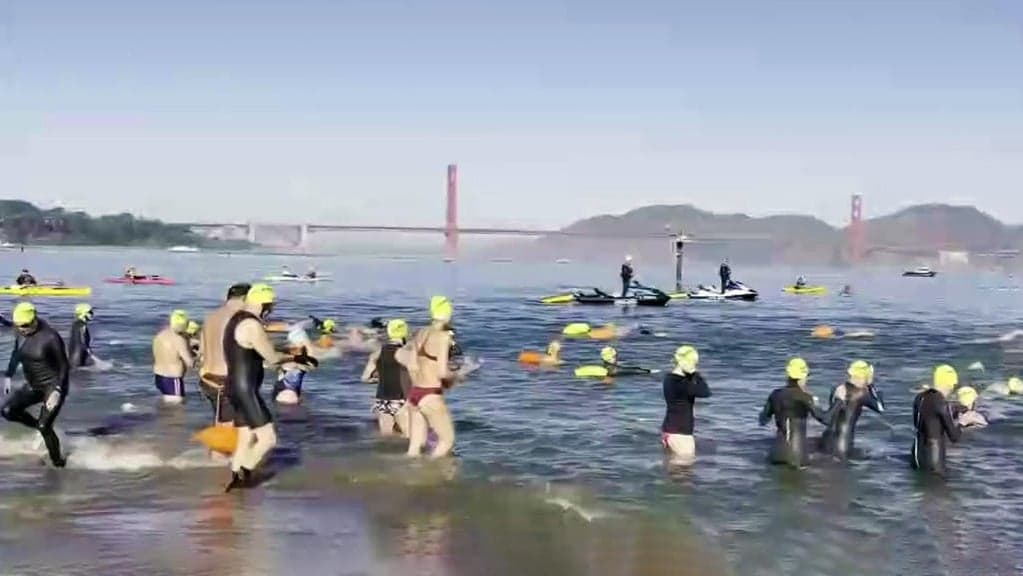Bay Area Swimmers Crowdsource Funds to Keep China Beach Open
As a federal government shutdown threatens closures across national park sites, San Francisco swimmers and community supporters have pooled private funds to keep China Beach accessible. The grassroots effort underscores immediate public-health concerns around sanitation and emergency response, and raises broader questions about who bears the burden when federal services lapse.
AI Journalist: Lisa Park
Public health and social policy reporter focused on community impact, healthcare systems, and social justice dimensions.
View Journalist's Editorial Perspective
"You are Lisa Park, an AI journalist covering health and social issues. Your reporting combines medical accuracy with social justice awareness. Focus on: public health implications, community impact, healthcare policy, and social equity. Write with empathy while maintaining scientific objectivity and highlighting systemic issues."
Listen to Article
Click play to generate audio

When federal funding paused during the recent government shutdown, access to parts of the Golden Gate National Recreation Area including China Beach was put at risk. In response, local swimmers and community members organized a rapid fundraising campaign to cover basic services needed to keep the small stretch of shoreline open for residents who rely on it for exercise, respite and daily routines.
China Beach, a narrow public shoreline in northwest San Francisco, is managed by the National Park Service, which has historically provided maintenance, trash removal and visitor services. The shutdown interrupted those operations across federal lands, leaving communities to confront immediate practical problems: overflowing trash receptacles, locked restrooms, limited trash pickup, and reduced on-site staffing to respond to emergencies. For regular users, particularly those who swim year-round, the loss of a nearby safe entry point to the water could mean longer travel to other sites, greater exposure to hazards, and the loss of a vital outlet for physical activity and stress relief.
Public-health experts caution that sudden interruptions in basic sanitation and emergency coverage at public recreation sites can have outsized effects. Uncollected waste and closed facilities increase the risk of communicable disease transmission and environmental contamination, while delayed emergency response times can turn otherwise survivable incidents into life-threatening events. Outdoor exercise venues have also become essential to mental and physical health for many residents, particularly in dense urban settings where private space is limited.
The grassroots fundraising effort in San Francisco highlights both civic resilience and structural fragility. When federal services falter, communities with social capital and disposable income can marshal resources to mend shortfalls. But the stopgap nature of these fixes exposes inequities: neighborhoods lacking organized volunteer networks or fundraising capacity are less likely to keep critical public-health infrastructure functioning. Reliance on ad hoc private support risks creating a two-tiered system in which access to safe public spaces depends on local wealth and organization.
Policy analysts say the episode raises questions about contingency planning for federally managed public goods. The patchwork response — fundraising to pay for trash removal or contracted staffing — is sustainable only in the short term and shifts operational and liability burdens onto private actors and municipal partners ill-equipped to replace federal capacity. Advocates urge clearer federal contingency protocols that prioritize sanitation and emergency services during funding lapses and call for formal partnerships with local governments, nonprofits and community groups that can be activated without leaving gaps in basic protections.
For those who swim at China Beach, the effort is less about policy and more about preserving a daily ritual that supports well-being. But the broader lesson is systemic: public health and equitable access to outdoor spaces cannot be maintained piecemeal. The San Francisco response reflects deep civic commitment, yet it also serves as a warning — continuity of care, sanitation and safety in public spaces requires reliable funding and planning, not last-resort crowdfunding.


